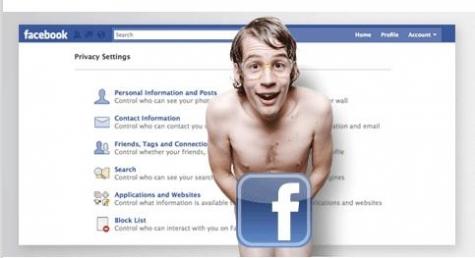A seven year study of Facebook by Carnegie Mellon University in Pittsburgh has found evidence of three contrasting trends in the amount of information disclosed by Facebook users over time.
1. Decreasing public disclosures
2. Abrupt changes in disclosure due to interface and policy changes, and
3. Increasing private disclosures.
The study, which appears in The Journal of Privacy and Confidentiality profiles data from 5,076 Facebook users from 2005-2011. It is the first longitudinal study to document how privacy and disclosure evolve on social network sites over an extended period of time.
The research found that from 2005-2009, Facebook users displayed more privacy-seeking behaviour, progressively decreasing the amount of personal data shared with the public.
But this trend abruptly reversed between 2009 and 2010 when changes implemented by Facebook, such as modifications to its user interface and default settings, led to a significant increase in the public sharing of various types of personal information.
The study also found that, over time, the amount and scope of personal information that Facebook users revealed to their Facebook ‘friends’ actually increased. As a result, users ended up increasing their personal disclosures to other entities on the network, sometimes unknowingly, including to ‘silent listeners’ such as Facebook itself, third-party apps and advertisers.
"These findings highlight the tension between privacy choices as expressions of individual preferences, and the role of the network environment in shaping those choices," said Associate Professor of Information Technology and Public Policy Alessandro Acquisti, who co-authored the study with researchers Ralph Gross and Fred Stutzman.
"While people try to take control of their personal information, the network ‘rules’ keeps changing, affecting their decisions and changing their privacy outcomes."
Professor Acquisti said the findings illustrate the challenges users face in trying to manage online privacy.
"Access to settings which help individuals determine which data other users get to see may increase the feeling of control by individuals, but this has also been linked to increases in disclosures of sensitive information to strangers.”







__small.jpg)










__small.png)










